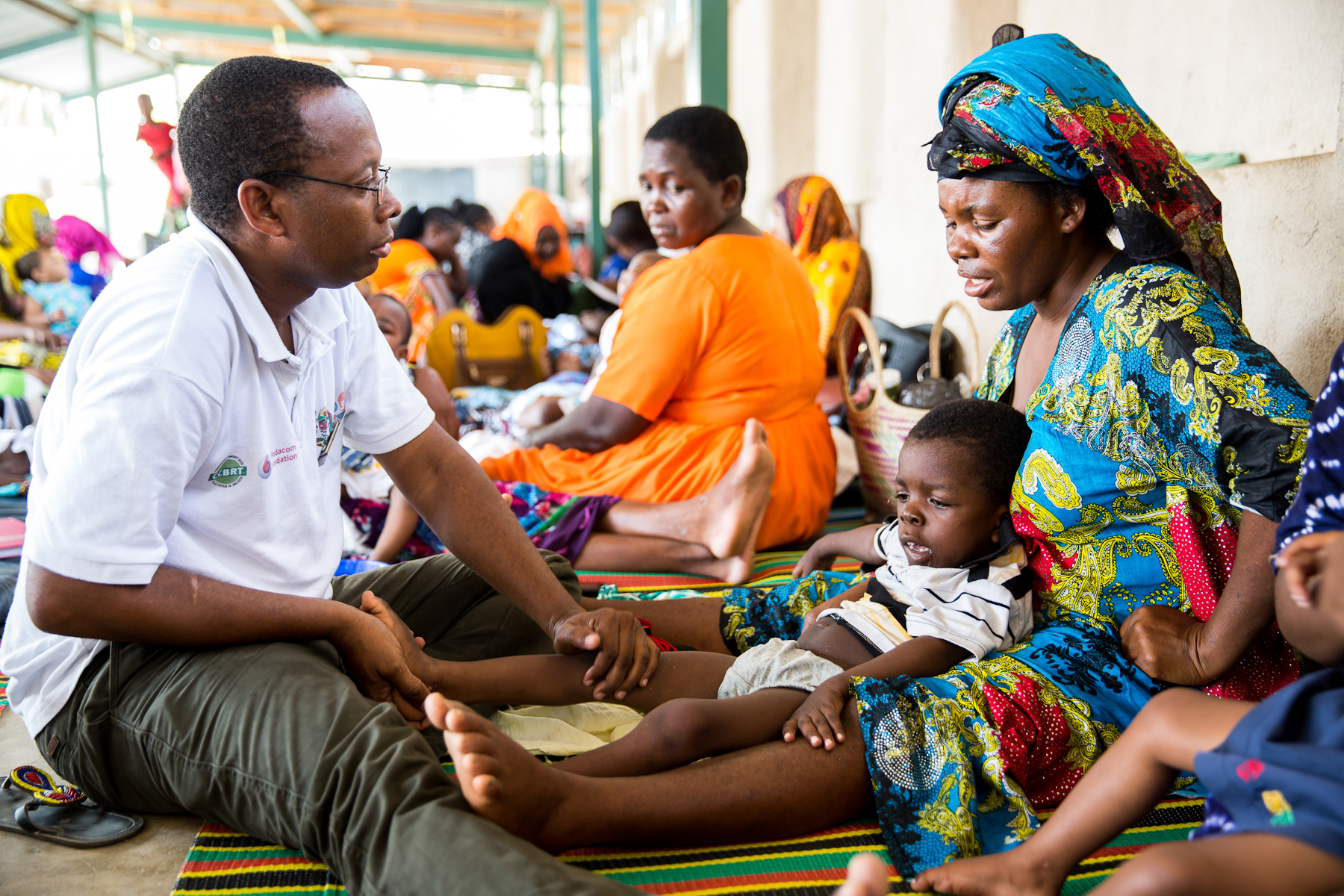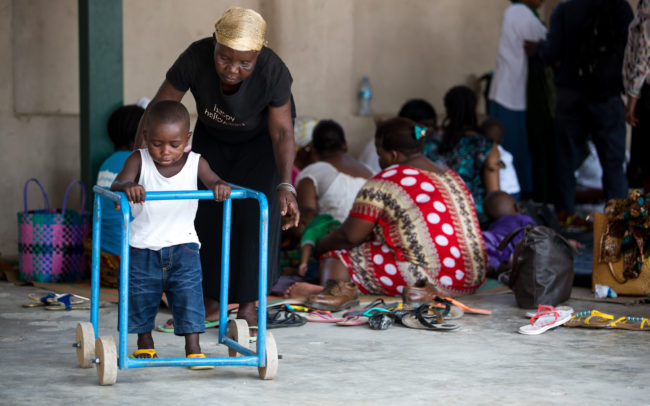Partnerships for Progress: Improving the health and wellbeing of children with disabilities

This month, Kupona Foundation launched a new partnership with the Dorothea Haus Ross Foundation to strengthen the comprehensive network of support available to children with disabilities and their families in Tanzania.
Funds will support training for parents/carers of children with disabilities, helping them to provide quality support for their children at home. Training will also be provided to government healthcare providers to strengthen delivery of rehabilitative services in healthcare facilities and community support units. At the community level, community events will increase awareness of rehabilitation services and promote inclusion. The grant will also facilitate knowledge exchanges between CCBRT and its peers in order to strengthen the network of community based inclusive development providers in the East Africa region. Combined, these activities will drive the sustainability of CCBRT’s established rehabilitation services, making quality care accessible to more children and their families.
Ken Goody, Foundation Executive at the Dorothea Haus Ross Foundation said, “At the Ross Foundation, we focus on alleviating the suffering experienced by vulnerable children and, when possible, strive toward the elimination of its root causes. We are thrilled to expand the Ross Foundation’s footprint in Tanzania by supporting this globally respected rehabilitation program, to make sustainable investments that strengthen the quality of rehabilitative care available to children with disabilities and their families.”
Unlocking opportunities for children with disabilities
Addressing disability during a child’s formative years is crucial to mitigate the impact of disability on health and development. More than half of children with disabilities in Tanzania do not attend school, limiting their access to education and future economic opportunity. Raising a child with a lifelong disability is also a significant challenge for parents and caregivers. With 86% of the Tanzanian population at risk of falling deeper into poverty because of healthcare expenses, families of a child with a disability are at particular risk for extreme poverty if they are unable to access affordable care for their child. Stigma associated with disability in Tanzanian communities also leaves children and their families excluded from their communities, and without a strong system of support. The dearth of skilled healthcare workers across the Tanzanian healthcare system exacerbates these challenges.
A comprehensive solution
CCBRT delivers high quality, specialist services at two rehabilitation centers: one in Moshi, serving rural communities in the north of Tanzania, and one in Dar es Salaam, Tanzania’s largest city. At these centers, CCBRT delivers high quality physiotherapy and occupational therapy, as well as special seating services and provision of assistive devices, including standing frames, prostheses and orthoses. In the community, CCBRT has established a network of Community Support Units in both Dar es Salaam and Moshi for the families of children with disabilities, providing a place for families to gather with their children, receive support from a trained physiotherapist/occupational therapist and develop a peer support system. CCBRT conducts home visits and community outreach to ensure long term support and follow up is provided to children with disabilities and their families in their home environment. CCBRT also uses training, lobbying and community awareness activities to build the capacity of parents, communities and government healthcare providers. This enables these groups to embrace their roles as primary caregivers and brings quality care closer to communities.
Abbey Kocan, Executive Director of Kupona Foundation said, “CCBRT has a 20+ year legacy of community-based rehabilitation work. Without trained caregivers and healthcare workers, an engaged and inclusive community, and a strong network of quality care providers, the impact of CCBRT’s efforts to deliver services to vulnerable children would be limited. The Ross Foundation’s contribution will act as a catalyst to enable the success of our overall program. We’re delighted to welcome them to the Kupona Foundation community.”


